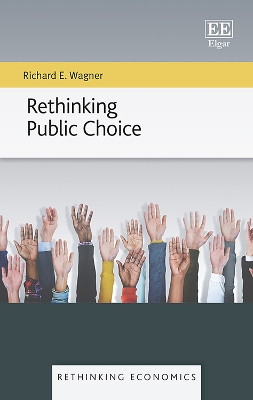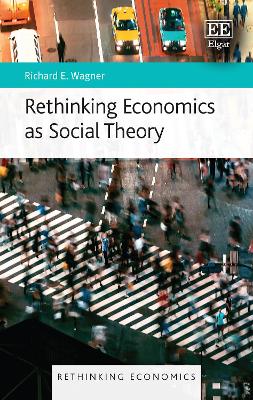Rethinking Economics
2 total works
Examining the growing variety of theoretical orientations on the topic, such as entangled political economy and additive political economy, the book provides new analytical insights into combining the old and new to establish a more unified political economy. Richard Wagner expertly highlights the key issues an entangled economy can bring, including incomplete information and its constant evolution as it reflects ever changing public choice ideas. Wagner seeks to extend the reach of public choice by distinguishing the formal idea of rationality that has dominated public choice from the immensely varied practice of human action that opens up now directions for public choice.
This insightful approach will prove an excellent resource for academics and scholars of economics and political science, as well as those within the field of public administration as it offers an excellent blend of all subjects.
Rethinking Economics as Social Theory moves away from the traditional review of analytical exercises and associated data and illustrates an enlightening scheme of thought where human societies are heterogeneous and not homogeneous and where change is continually in motion. Furthermore, Wagner theorises that economizing is a universal form of human action that plays out in numerous substantive directions and shows cooperation and conflict to have a yin-and-yang relationship.
This illuminating book will prove an excellent resource for economists interested in working outside of comparative statics as well as social scientists looking for a broader vision of economics. Philosophers and those working in the field of biological sciences will also find this an informative read.

